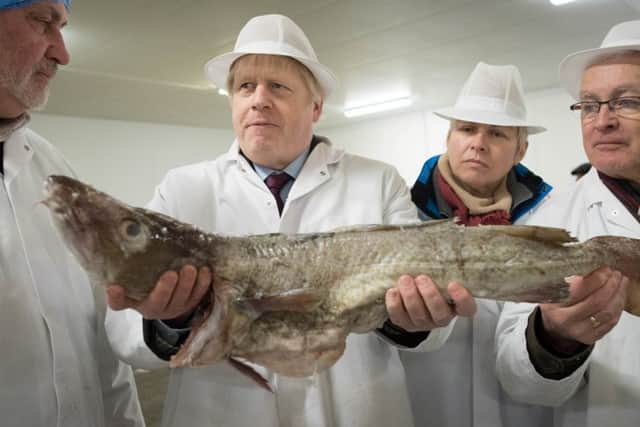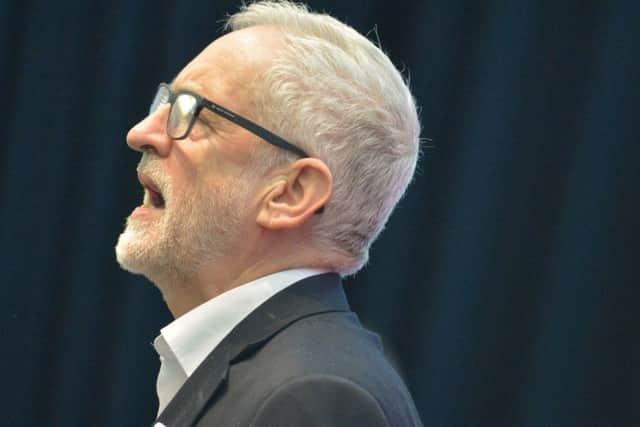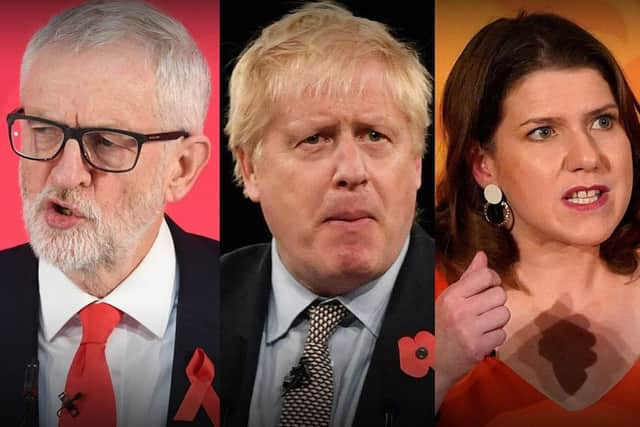General Election’s defining days reveal few grounds for optimism – Andrew Vine
But that’s the only straightforward thing about the election for this bunch of voters, who in our spread of outlooks, ethnicities, variety of jobs and family lives, are probably pretty representative of hundreds of urban constituencies all over the country.
Of the dozen or so of us closest to the polling station, only one, a chap with a placard for Labour in his front garden, is certain about who to vote for.
Advertisement
Hide AdAdvertisement
Hide Ad

All of us are conscientious voters, sharing the view that it is a duty to turn out and exercise our right to have a say in how the country is run.
But the choices aren’t inspiring, and that’s causing the uncertainty. A Labour Party with Monopoly-money policies and a nasty undercurrent of anti-Semitism? A Conservative Party dominated by right-wing zealots? Lib Dems who have failed to capture the centre ground that was theirs for the taking?
Advertisement
Hide AdAdvertisement
Hide AdAbout half of us are old enough to have voted in elections when entering the polling booth had an undercurrent of excitement and anticipation. Using the stubby pencil to mark an X against a candidate’s name felt like a positive contribution to forging a better future for our country.


That’s how it was in 1979 when, after some hard years, the electorate put its faith in Margaret Thatcher’s Conservatives, and again in 1997 when it backed Tony Blair’s Labour.
They came to office on a surge of public optimism that brought together support from voters who switched their normal political loyalties in the belief that was best for Britain. There was a feeling of purpose in the air.
Advertisement
Hide AdAdvertisement
Hide AdBut it isn’t like that this week, even as Boris Johnson embarked on a tour of northern Labour marginal seats in an attempt to bridge traditional divides.


Voters will make a choice, but through gritted teeth after lacklustre campaigns from parties which have failed to set out positive visions.
Optimism has been entirely absent in the gloomiest, most downbeat election I can recall. The country has been wearied by negative campaigning which relies heavily on scaremongering. Labour will bankrupt the country, say the Tories. The Tories will sell off the NHS, say Labour.
None of the leaders inspire much confidence, lacking the ability to reach out to a broad coalition of voters as Mrs Thatcher and Mr Blair were able to do in their political prime.
Advertisement
Hide AdAdvertisement
Hide AdBrexit hovers over everything, and the choice of government will have a profound effect on Britain’s future, but even so there is a lack of genuine passion or persuasive argument.
The negativity of the campaign has been especially off-putting to the young. A couple of first-time voters told me how unappealing they find the tit-for-tat accusations.
At 18 and 19, their thoughts are on the future but what they’re hearing is a lot of middle-aged squabbling that seems stuck in the past. Even more than their parents, they sense a lack of vision in what’s being said, and nobody much seems to be addressing them.
There has been too little emphasis on climate change from the big three parties when it’s at the forefront of these young voters’ minds. After supporting the Extinction Rebellion protests and teenage activist Greta Thunberg, it comes as a slap in the face to find those likely to govern not taking enough notice. Apart from the Greens, everybody else seems to be paying lip service to the need for action on the environment without being fully engaged.
Advertisement
Hide AdAdvertisement
Hide AdBrexit troubles them too, because they see it as limiting their options on where to live and work. The likelihood of them voting Conservative after having seen the likes of Jacob Rees-Mogg and Iain Duncan Smith on television night after night – until they vanished when the campaign began – is remote.
They share their parents’ sense of duty about voting, but are disturbed that the main parties just haven’t made the effort to target the young and their concerns.
It’s a failing that makes younger people feel they somehow don’t count as much as older generations, and that can only result in a further distancing of politics from the public.
But then this has been a curiously unengaging election for young and old alike, especially when so much is at stake. There is a possibility that the lack of enthusiasm for the choices on offer will result in a low turnout because voters don’t see any point in having to pick a least-worst option.
Advertisement
Hide AdAdvertisement
Hide AdWhatever government we end up with on Friday morning, it isn’t going to feel inclusive to millions of voters, and that diminishes its chances of healing the divisions which are causing such angst in our country.